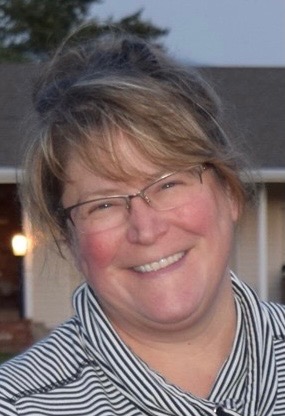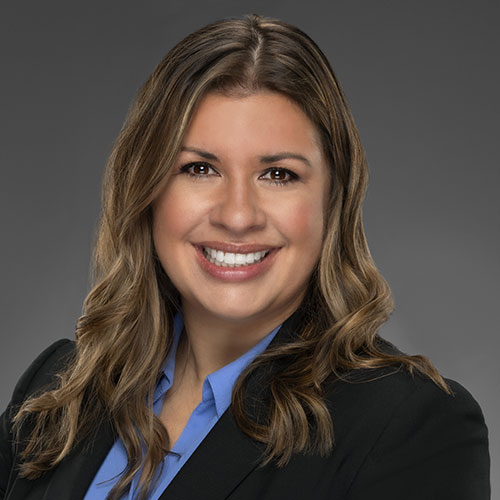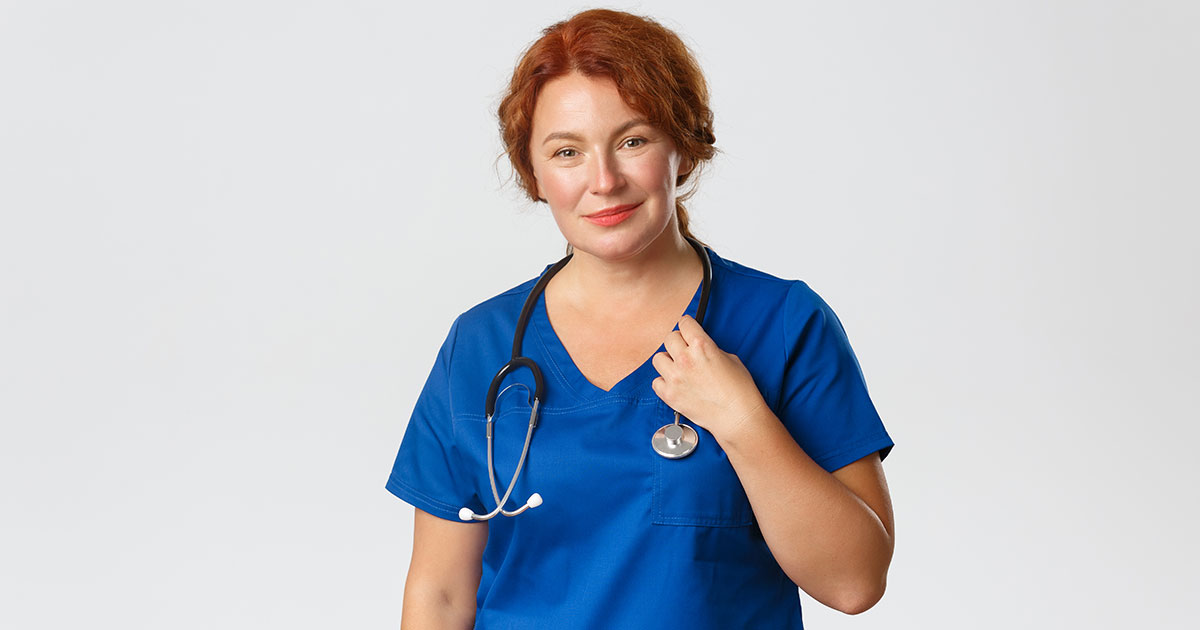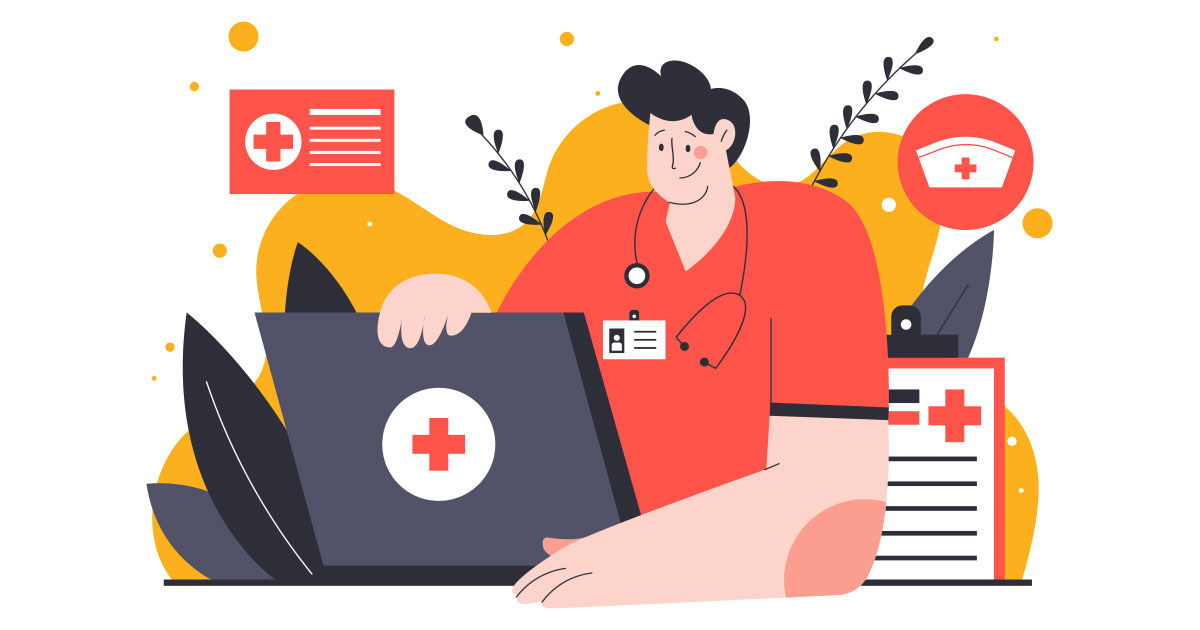How did you get started with LocumTenens.com, and what made you decide to work with us?
I worked for Veterans Affairs for 16 years. After that, I knew I wanted to try something where I wasn’t rooted in one spot, so I did some research online about locum tenens work and did a preliminary interview with LocumTenens.com. Since my very first conversation with them, everyone I spoke to was so nice and transparent and made me feel really comfortable. I was going through huge, tectonic changes in my career, so I didn’t really know what to do. But the associates at LocumTenens.com were very helpful and made me feel so supported. They also helped me get my license in a different state. Every time there’s been something I need, my recruiter has handled it. I felt like I was adrift, but now I’ve found a home.

"Being a 'really good doctor' is being a 'really good doctor', regardless of location or practice setting, and caring for these patients is what puts life in my veins," says Dr. Curl.
What made you decide to try corrections assignments?
Corrections work seemed like a frontline job where I could define both myself and my career in terms of clinical work. At the point in my career when I started doing locum tenens work, I didn’t want to do any administrative work at all. I found the role within corrections assignments to be very well defined. I also appreciated the opportunity to work in a part of Washington state I hadn’t experienced yet. It felt like an adventure. It got me out of the big city, into a more rural setting. It was really the perfect thing for me to do.
What do you enjoy about working corrections assignments?
For me and for so many other physicians and advanced practitioners, medicine is a calling. It’s not just a job or a paycheck. I need to be able to connect with my patients and my coworkers and be useful to them. I want to help them better navigate their care and add value to my team. Working in corrections makes establishing that connection easier.
The patients I see are very vulnerable and in compromised situations, not just because they’re incarcerated. There’s also the psycho-social component that goes along with this kind of care, and I can help them navigate through it. When someone is incarcerated, it’s also very easy for the care they receive to become fragmented and their primary care is lost. Someone can be transferred between multiple facilities, and they may need specialty care that has to be sought from the community. I’m glad I’m able to help advocate for these patients and their continuity of care. If you really care about people, working in corrections is an easy way to feel like you made a difference for somebody; you’re helping people who wouldn’t otherwise be able to help themselves.
What does a typical day look like as a clinician at a corrections facility?
I worked corrections for only about two or three weeks before the pandemic started. For this reason, I feel like I haven’t really had a “typical” day yet. However, my day starts at 7:00 a.m. Corrections assignments necessitate high security, so I have to go through several gates and checkpoints where they scan my badge. The clinic is very secure, and inmates are transported and brought back with a guard.
In May, my facility reached outbreak status, so there were some disruptions, but it gave me the opportunity to morph my assignment into running the COVID outbreak response in three prisons, 12 work release sites and camp. Rather than typical duties, we had to do whatever needed to happen in the moment. It’s been fun in the sense that it’s provided variety. As part of the COVID response team, I’ve traveled to different correctional facilities, and I’ve seen more of the state now than I have in the last decade of living here. It’s wonderful to be able to work this way.
What have the COVID protocols and PPE supply been like?
We’re currently on version 25 of our COVID guidelines. I actually had the opportunity to help write the guidance. If you remember at the beginning of the pandemic, it was recommended not to wear masks because the supply was not able to keep up with the demand. But as a part of their work with Correctional Industries, our inmates were able to make things to benefit themselves and others. First, they made cloth masks, then face masks, gowns, barriers and signs. It was very empowering for them to work to protect themselves and to help others in a time of need.
What is the security like at the correctional facilities where you’ve worked? Have you always felt safe on assignment?
I’ve never had one moment where I felt unsafe, which is so important. You have to go through multiple layers of security, and when you’re in the clinic, it’s a locked situation. It’s always monitored by guards, and you never feel like you’re alone. I have an emergency radio, but I’ve never felt like I needed one. When you actually go out into the living units, you have your emergency radio and are in constant contact with guards. I have seen disruptions occur, but they were quickly and very professionally handled. I never felt as though my security was compromised.
I used to sometimes take a walk around the laundry facility during my lunch break and always felt safe doing so. You are on camera and someone is watching all the time. If you are having any difficulty, guards would see what is going on. No one has ever gotten threatening, and even the patients incarcerated for the most serious acts are all very grateful to the medical staff.
What are you allowed/not allowed to take in with you? For example, are you allowed to bring your cell phone? How are you able to communicate with your recruiter while on assignment?
When you work corrections, you shouldn’t take anything non-essential, such as an outside set of keys, your personal cell phone, money, medication or weapons or alcohol, of course. You don’t take those things in because if someone is trying to get something they’re not entitled to, you don’t want to supply such items. You’re able to bring lunch, water and the tools you’ll need to do your job, although you have to be conscious of the tools you bring in. For example, you shouldn’t take something like a reflex hammer, as items like that can be stolen and repurposed. Those things are kept in the clinic in a secure case. I’m able to call and text my recruiter on my department of corrections phone. It’s no more difficult to get in touch with my recruiter than it is when I’m sitting in my home office. The only real adjustment for me was not being able to text and check in with family or check Facebook or other social media on my lunch break. I can’t do idle tasks like that in my downtime, but it has never been a big deal.
What’s are the biggest differences between working in federal prisons vs. state prisons? What about men’s vs. women’s correctional sites?
I’ve worked with women’s prison populations due to our COVID response efforts, but not on their campus. In prison, women’s care tends to almost become women’s and children’s care, as some are pregnant and deliver while incarcerated, and we need to provide OB/GYN services. That’s the biggest difference. We also provide care, including hormone replacement, for our transgender patients.
Working in federal and state prisons is a similar experience, but federal prisons tend to have more clinicians on staff. Federal security and clearance is also a bit more involved.
What has been your most rewarding experience working with those who are incarcerated?
Interacting with my patients. They are people who have found themselves in a hard position. In a way, them being incarcerated provides a very precious opportunity to show compassionate care. For example, a lot of them are young and scared due to the pandemic. They can’t get away from living with a bunch of other people and want to know what happens if they get COVID and what they should do. I have enjoyed helping them navigate these situations and making them feel supported.
The relationships a doctor has with their patients are sacred. A lot of times, we’re dealing with really serious illnesses such as cancer or diabetes. For the first seven months or so of my assignment, I was taking care of a lot of elderly patients with severe illnesses. Being a “really good doctor” is being a “really good doctor,” regardless of location or practice setting, and caring for these patients is what puts life in my veins.
What advice would you share with someone who is considering working a corrections assignment?
Just do it. Try it. What do you have to lose?
You have so much to gain. Keep a journal and reflect on your experiences. You never know what you’ll learn about yourself by looking at life through your patients’ eyes. I feel like I’ve gained a whole world over the last year, and I’ve gained so much empathy for people with different life circumstances.

About the author
Jenny Binner, MBA, MHA
AVP of Emergency Medicine, Urgent Care, and Occupational Medicine Services
Jenny began her career at LocumTenens.com in 2017 after an extensive career in healthcare staffing, technology and management. With over 15 years of healthcare experience, Jenny brings a wealth of knowledge to role as Associate Vice President of the Emergency Medicine division. As AVP, Jenny is focused on assuring clients the very best coverage for their need for Physicians and Advanced Practice Providers in Emergency Medicine, Urgent Care, and Occupational Medicine settings.
Along with the work Jenny does leading the Emergency Medicine Division, Jenny works with LocumTenens.com's Charitable Giving committee and uses her vast healthcare background to lead and manage many of LocumTenens.com's company-wide projects and initiatives. She graduated from the University of Georgia and received her Master of Health Administration(MHA) and Master of Business Administration(MBA) from the J. Mack Robinson College of Business at Georgia State University in 2014. She loves reading, rescuing dogs, spending time with her family, and attending her son's sporting events in her free time.





